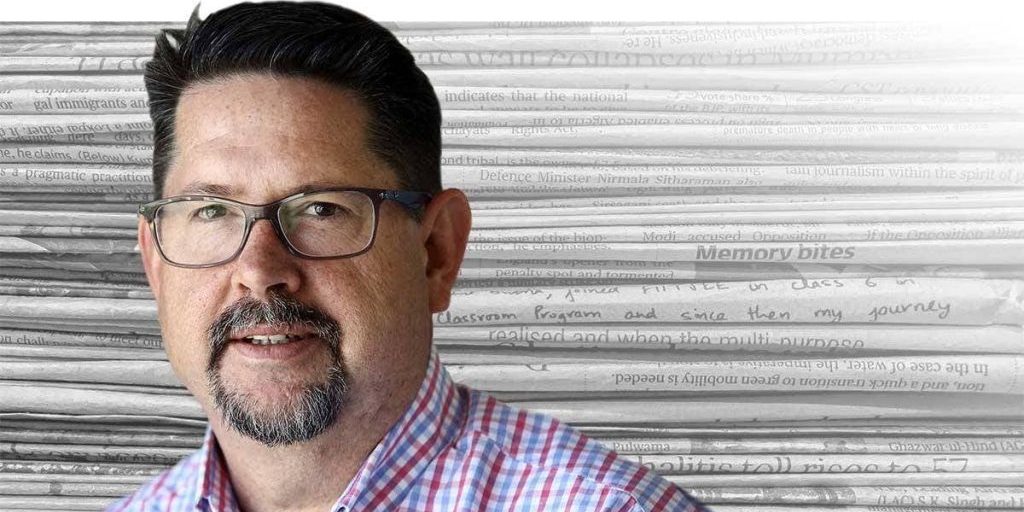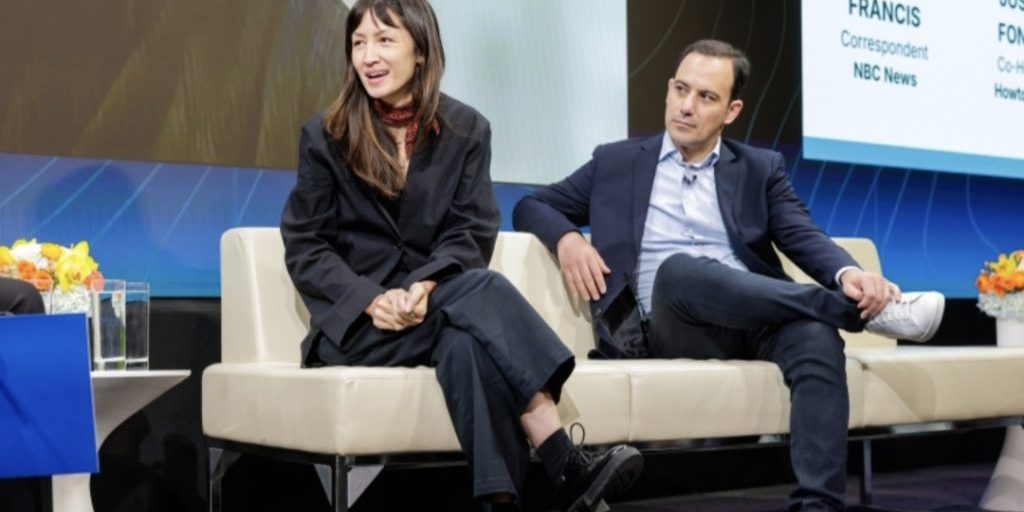Background to the expulsion of Independent Media titles
AIDE MEMOIRE
The Press Council of South Africa and Independent Media
It is unfortunate that Independent Media has responded to recent findings against them by attacking the Press Council’s integrity.
The Press Council will not be responding to the unfounded allegations and insults, but wishes to state the facts.
News24 and Karyn Maughan vs Sunday Independent
On 6 August 2024, Deputy Press Ombud Franz Krüger and a panel of adjudicators comprising former law professor Prof. Karthy Govender (public representative) and veteran journalist Joe Thloloe (media representative) issued a ruling in respect of the complaint, News24 and Karyn Maughan vs Sunday Independent, following a hearing held on 23 July.
Present at the virtual hearing was the editor of Sunday Independent, Sizwe Dlamini, who represented the respondents. He was later joined at the hearing by Edmond Phiri, the author of the article and the subject of the complaint, which was headlined, ‘Is Karyn Maughan South Africa’s Leni Riefenstahl – the Nazi Propagandist?’, and was published in Sunday Independent on 3 March.
IOL and other Independent Media titles also published the article and/or links to the article on their social media pages.
Prof Krüger and his panel members unanimously found that the Sunday Independent and all online and other entities that published the article in question failed to meet the requirements for protected comment outlined in Section 7.2 of the Press Code and breached Clause 3.3.
The panel ruled that the article also breached Section 2.1 of the Press Code.
Section 7.2 which deals with Protected Comment states:
Comment or criticism is protected even if it is extreme, unjust, unbalanced, exaggerated and prejudiced, as long as it is without malice, is on a matter of public interest, has taken fair account of all material facts that are either true or reasonably true, and is presented in a manner that it appears clearly to be comment.
Clause 3.3 which deals with Privacy, Dignity and Reputation, states (that journalists should):
- 3.3 exercise care and consideration in matters involving dignity and reputation, which may be overridden only if it is in the public interest and if:
- 3.3.1. the facts reported are true or substantially true; or
- 3.3.2. the reportage amounts to protected comment based on facts that are adequately referred to and that are either true or reasonably true; or
- 3.3.3. the reportage amounts to a fair and accurate report of court proceedings, Parliamentary proceedings or the proceedings of any quasi-judicial tribunal or forum; or
- 3.3.4. it was reasonable for the information to be communicated because it was prepared in accordance with acceptable principles of journalistic conduct; or
- 3.3.5. the article was, or formed part of, an accurate and impartial account of a dispute to which the complainant was a party.
In its ruling, the Panel stated: ‘We repeat that comment writers should be given latitude to develop their arguments and are allowed to use hyperbole and other devices to make their case.’
‘However, the limit is reached when criticism turns into mere abuse. Noting the severity of the attack on Maughan and the lack of substantiation, we find that the column fails to achieve the protection of clause 7.2.’
The panel also found that IOL and other associated entities breached Section 2.1 of the Code which states that the media shall ‘not allow commercial, political, personal or other non-professional considerations to influence reporting, and avoid conflicts of interest as well as practices that could lead readers to doubt the media’s independence and professionalism’.
In its sanction, the panel directed Sunday Independent, IOL and any other associated entities that published Mr Phiri’s column to retract the column and apologise to Ms. Maughan.
The panel said that in considering how to deal with the online version of the article, it took into account that an order to remove the article should be rare as it changes the record
‘However, we felt special weight should be attached to the severe harm caused to Maughan’s personal and professional reputation,’ the panel stated in the sanction, ordering that the article should be deleted online.
Sunday Independent lodged an application for leave to appeal to the Chair of the Appeals Panel, Judge Bernard Ngoepe. In his decision on the application for leave to appeal, issued on 27 September, Judge Ngoepe concluded that the attack on Ms Maughan was quite serious and dismissed Independent Media’s application for leave to appeal, as he found that there was no reasonable prospect of success
Independent Media, raised several concerns in a letter dated 18 October about the Press Council’s processes, suggested that the Press Council appeared devoid of integrity and that its submissions were completely disregarded and therefore [the Press Council] demonstrated bias.
The Press Council only applies the Press Code to evaluate and adjudicate complaints. Our processes are independent to protect the integrity of our mediation and adjudication processes. The virtual hearing was recorded and all our hearings are open to members of the public except in instances involving children or the survivors of sexual violence
Independent Media further stated the sanction was disproportionate, infringed on the Sunday Independent’s editorial independence and that the finding of editorial interference by its shareholder was made without affording the shareholder a right of reply and was false and baseless.
Judge Ngoepe in his decision stated that the essence of the complaint was that the article was not by an independent writer but was written ‘on behalf of, at the behest of or at least in the interest of Independent Media and Dr Survé and that the name used was a pseudonym’.
Independent Media also stated that by allowing Media Monitoring Africa (MMA) to ‘smuggle itself in as an amicus‘, the Press Council had opened the floodgates for advocacy groups to ‘leverage the complaints process as Trojan horse to exert control over media entities they oppose’. However, Sunday Independent had been forwarded MMA’s application to be admitted as amicus curiae when the complaint had been sent to it for its response
Judge Ngoepe further stated in his decision with regards to Sunday Independent’s allegation that MMA was merely admitted at the hearing, without Independent afforded an opportunity to respond in writing.
Contrast this with the following response by the respondents: ‘ … when the Deputy Press Ombud informed the parties … that he would be convening a hearing, he requested Independent Newspapers to respond to our complaint and MMA’s application.’
Sekunjalo’s internal counsel even motivated a request for an extension by stating that they needed time to respond to MMA’s ‘lengthy’ application.
‘When they finally delivered their response to our complaint, however, they said nothing about MMA’s submissions.’ (Judge Ngoepe’s own emphasis.)
Independent Newspapers vs Gill Moodie
On 23 August 2016, journalist Gill Moodie lodged a complaint against Independent Newspapers for an article published in the Cape Times, The Star, the Cape Argus, Pretoria News, the Daily News and IOL entitled Expose: the dirty tricks campaign.
The core of the story was that Ms Moodie and other journalists were bent on publishing articles critical of Independent News and its chair Dr Survé, and that they undermined the reputation of a black-owned business. The article questioned the journalists’ professional integrity.
On 28 September 2016, former Ombud Johan Retief directed Independent Newspapers to apologise to Ms Moodie.
Independent Newspapers sought and were granted leave to appeal against the sanction by Judge Ngoepe in November 2016. However, Independent Media had terminated its membership of the Press Council in October 2016 and did not pursue the appeal.
When Independent Media rejoined the Press Council in January this year, Ms Moodie enquired whether Independent Media would publish the apology as directed by Mr Retief in the light of its obligation to adhere to rulings, as set out in the Press Council’s Constitution.
In June this year, the Press Council gave Independent Media an opportunity to pursue its application for leave to appeal granted in November 2016. But Independent replied that it considered the matter to be closed and would not publish an apology.
On August 23, Judge Ngoepe issued a memorandum stating that the time lapse since the granting of leave to appeal had been too long and that resuscitating the appeal would bring the adjudication process of the Press Council into disrepute. Judge Ngoepe therefore stated that the sanction imposed by Retief in 2016 stands as it was never appealed against and will never be.
- Issued by:
Latiefa Mobara: Executive Director of the Press Council of SA, and
Fanie Groenewald: Public Advocate of the Press Council of South Africa
[email protected] 082 850 3972
23 October 2023




